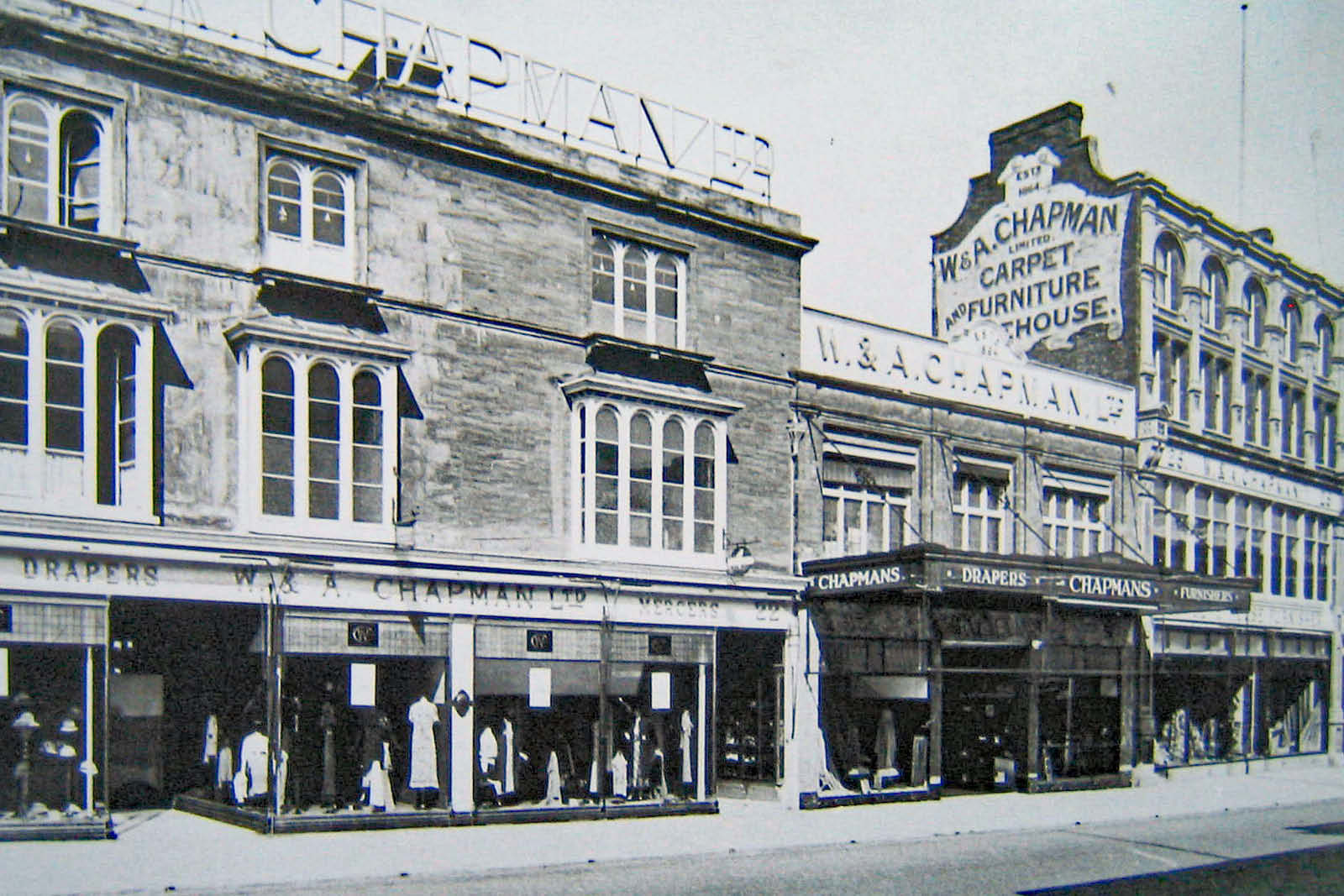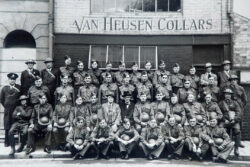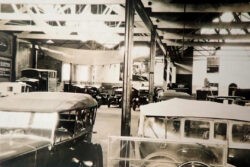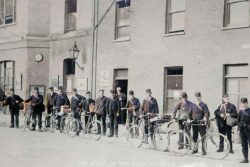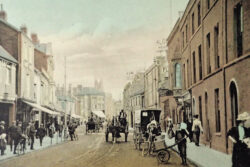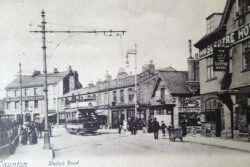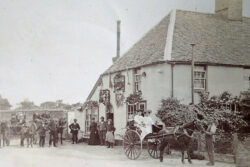Like many in December, I was drawn to the closing down sale of Debenhams. A really sad occasion for Taunton. The original store was opened in 1864 by two London brothers William and Arthur Chapman. By 1902 the store occupied numbers 20 to 26 North Street and expanded into W.T. Maynards and Sons at number 19 after the war. The brothers offered for sale ‘articles of sterling quality and value’.
The company celebrated its Jubilee in 1914. A history was published in The Gazette of 7th March 1914. The site nearer the bridge was a carpet and furniture warehouse whilst the adjoining part was a drapery and general store. Chapmans also ran an undertaker’s business using a horse-drawn glass-sided hearse. By 1900 the company was connected to the gas supply. Two engineers called to find a leak in January 1900 set off an explosion in the store which was said to have “upset the people in the room and relocate the staircase”. An employee had a crushed hand. Chapman’s delivery service used a traction engine in the early days and like Hatchers soon had its own motor delivery fleet.
A sales list in 1930 offered (decimal equivalent) Tweed skirts at 50p, cotton frocks at £ 1.20, and Klingsil hose stockings at 50p. My wife used to have her hair done in Chapmans in the 1960s. The Chapman family were also members of the Silver Street Baptist Church.
By around 1970 the store was in Debenhams hands though there seemed to be a period of transition and restructuring in the late 1960s.In 1778 William Clark opened a drapery store in London’s West End selling expensive fabrics, gloves bonnets, and parasols. In 1813 the company became known as Clark and Debenham after an injection of capital by William Debenham. The pair opened another store at Cheltenham in 1818. The company prospered following the strict rule of fashion for early Victorian ladies. The latter half of the nineteenth century was an era of great expansion. The company again changed its name to Debenham and Freebody when Clement Freebody joined the firm in 1851. Debenhams became a limited company in 1905. More acquisitions took place up to 1928 when Debenhams became a public limited company the family having relinquished control. The 1950s saw Debenhams become the largest store group in the UK owning 84 companies and 110 stores.
In 1985 Debenhams became part of the Burton group which continued to be the case until 1998. In April 2019 Debenhams entered administration. Restructuring and new funding failed to save Debenhams PLC and it finally collapsed into Receivership in December 2020 following the collapse of Arcadia which held concessions in the store. The Taunton store is leased and the owners have submitted plans for its future use.
By Nick Chipchase
